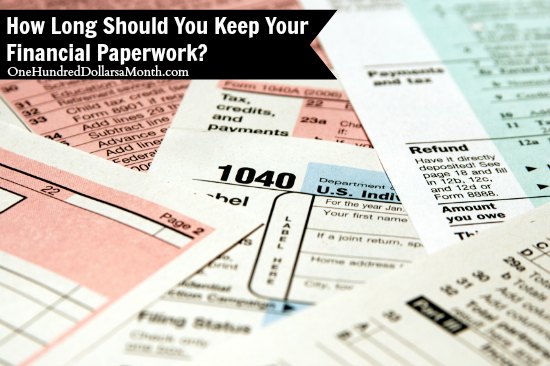How Long to Keep FAFSA Paperwork: Simple Guide

Understanding FAFSA and Its Importance

FAFSA, or Free Application for Federal Student Aid, is your ticket to unlocking financial aid for college or graduate studies. This application opens the door to a variety of federal grants, loans, and work-study programs, not to mention eligibility for state and college-specific aid. Given its significance, maintaining your FAFSA paperwork is paramount, and today, we’re going to delve into how long you should keep these essential documents.
Why Keep FAFSA Documents?

Before we dive into the retention period for your FAFSA paperwork, let’s underscore why it’s crucial to keep these records:
Audit Protection: Federal Student Aid (FSA) might audit a randomly selected percentage of applications. Having your documentation in order can expedite this process or refute any discrepancies that may arise.
Adjustments: Life changes, like marriage or divorce, might necessitate adjusting your aid. Having your documents on hand allows for easier amendments.
Future Aid Applications: Since some information from past FAFSA applications might be needed for future applications, keeping them can save you from having to gather that information again.
Disputes and Reconciliation: If there’s ever a dispute regarding your financial aid, having records can help you substantiate your position.
How Long Should You Keep FAFSA Paperwork?

The retention period for your FAFSA documents can be broken down into three main periods:
Short-Term Retention

For one to three years, keep these:
- The original FAFSA application and acknowledgment form.
- Copies of your tax returns and W-2s from the year the FAFSA was submitted, as these are used to verify income information.
- Any correspondence with your college’s financial aid office.
✅ Note: Keeping these documents for at least one year is advisable, as the FSA can select your file for review up to a year after the academic year you received aid for.
Long-Term Retention

Maintain these records for three to six years:
- IRS tax returns and W-2s that were used in your FAFSA application.
- Verification worksheets or other requested documents.
✅ Note: The IRS has a statute of limitations for tax returns, which is generally three years from the date of filing. However, in cases of potential fraud or large errors, the limit extends to six years.
Indefinite Retention

Some documents are worth keeping indefinitely:
- Your signed Master Promissory Note (MPN) for loans, as it’s a legal obligation.
- Information regarding grants and scholarships.
- Documentation related to identity theft or tax fraud, particularly if it could influence your FAFSA eligibility.
Organizing Your FAFSA Paperwork

A well-organized approach to keeping your documents ensures you can locate them when necessary:
Categorize and File: Use folders or binders to separate documents by school year or by document type (e.g., “Tax Returns,” “Aid Correspondence”).
Digital Backup: Consider scanning your documents to create digital copies, stored on a cloud service or an external hard drive. Digital records are less susceptible to physical damage and are easier to search.
File Naming Convention: Use a clear naming convention for digital files, including the year or school term, for quick reference.
FAQs

Here are answers to commonly asked questions about retaining FAFSA paperwork:
Do I need to keep my FAFSA documents if I didn't receive aid?

+
Yes, retaining your documents is still beneficial. They can provide a record of the process and be helpful if you reapply for aid in the future or if there's an audit.
Can I shred my FAFSA documents after the audit period?

+
After the audit period and any applicable statute of limitations, shredding or securely disposing of sensitive documents is advisable. Retaining important or long-term records is wise.
What if I lose my FAFSA documents?

+
You might be able to retrieve some information through your tax returns or contact your school's financial aid office. However, digital backup solutions and creating a clear organizational system can prevent such scenarios.
In summary, knowing how long to retain your FAFSA documents can greatly facilitate your educational journey. Keeping records for at least three years provides the necessary evidence for audits, potential loan adjustments, or future aid applications. Moreover, maintaining a well-organized system and digital backups ensures your documents are secure and accessible. Remember, being prepared can make all the difference when navigating the complex terrain of financial aid.



